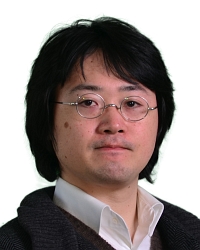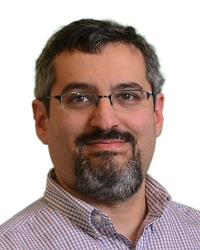TR2015-130
Universal Multi-Stage Precoding with Monomial Phase Rotation for Full-Diversity M2M Transmission
-
- , "Universal Multi-Stage Precoding with Monomial Phase Rotation for Full-Diversity M2M Transmission", IEEE Global Communications Conference (GLOBECOM), DOI: 10.1109/GLOCOM.2015.7417467, December 2015, pp. 1-7.BibTeX TR2015-130 PDF
- @inproceedings{Koike-Akino2015dec,
- author = {Koike-Akino, T. and Kim, K.J. and Orlik, P.V. and Pajovic, M.},
- title = {{Universal Multi-Stage Precoding with Monomial Phase Rotation for Full-Diversity M2M Transmission}},
- booktitle = {IEEE Global Communications Conference (GLOBECOM)},
- year = 2015,
- pages = {1--7},
- month = dec,
- doi = {10.1109/GLOCOM.2015.7417467},
- url = {https://www.merl.com/publications/TR2015-130}
- }
- , "Universal Multi-Stage Precoding with Monomial Phase Rotation for Full-Diversity M2M Transmission", IEEE Global Communications Conference (GLOBECOM), DOI: 10.1109/GLOCOM.2015.7417467, December 2015, pp. 1-7.
-
MERL Contacts:
-
Research Area:
Abstract:
Machine-to-machine (M2M) communications have been considered as an important application to connect a massively large number of different devices in networks. In particular for M2M wireless networks, low latency and high reliability are of great importance. To fulfill the requirements, a diversity technique exploiting limited resources is proposed in this paper for short-message transmissions. The proposed method uses multiple stages of fast unitary transforms and diagonal phase rotations to achieve full-diversity gain. A monomial phase rotation is also proposed to facilitate an optimization of the precoding matrix. It is verified that the proposed four-stage precoding provides universal diversity gain irrespective of channel selectivity in time and frequency, without changing monomial parameters. In addition, it is shown that the four-stage precoding based on the discrete Haar transform (DHT) achieves a full diversity while the computational complexity is significantly reduced from a loglinear order to a linear order compared to the other unitary transforms such as the discrete Fourier transform (DFT).

